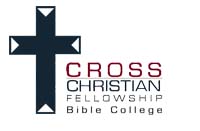Proactive Approach Trims Risks Linked to Chronic Illness among Children in Ministry Settings
Good planning limits ministry liability when handling children with infectious diseases

If a parent approaches a worker in your children’s ministry to say that his or her child has a serious chronic illness such as AIDS, hepatitis, or tuberculosis, will the worker know how to respond? How will workers respond if they learn that a child is being treated for temporary afflictions like lice, chicken pox, influenza, or the common cold? What if a parent or guardian wants to enroll a child who has not undergone standard immunizations?
For the health and safety of the children, ministry leaders should take a proactive approach and develop policies and procedures for handling children with infectious diseases. In many ways, this is a legal balancing act as ministry leaders must balance the interests of the infected minor with the ministry’s responsibility for the overall health and safety of all children and ministry workers. An infectious diseases policy can mesh legal requirements with generally accepted “best practices” for handling infectious diseases in settings involving minors.
Develop “Best Practices,” Policies, and Procedures
A good place to start is The Centers for Disease Control and Prevention (CDC). The CDC has established infection control guidelines for health care workers that churches can adapt to meet the needs of their ministry situations. State health authorities and organizations like the American Academy of Pediatrics also are excellent resources that can help ministries identify “best practices.” Brotherhood Mutual’s sample policy form includes standards adapted from CDC guidelines, attendance standards, and other logistical information that can be helpful as you develop such a policy for your church or ministry.
Guidelines related to including or excluding minors from church programs should follow the requirements set by the CDC and state and local health departments. Any infectious diseases policy you develop should itemize specific symptoms of short-term illness that would exclude minors from ministry activities.
If a ministry decides to accommodate an unvaccinated child or a child with a chronic communicable disease, a special medical needs agreement can facilitate the child’s participation in ministry programs and activities. Brotherhood Mutual has developed a sample medical needs agreement for that purpose.
Protect Minors’ Privacy Interests
Ministry leaders should be sensitive to the privacy interests of minors with chronic, communicable diseases and encourage parents to voluntarily notify the church if their child has such a disease. Develop a health information form that asks for health-related background information that ministry workers need to recognize a potential health emergency. Brotherhood Mutual’s sample health information form can provide the foundation for one you develop for your ministry.
A church can limit its risk of being the target of a privacy suit by making sure that private health information is shared only with ministry workers on a “need to know” basis. Generally, parents of other children in a church’s childcare program do not have a right to know about the health status of other children in the program.
Finally, ministry leaders should be aware of any legally mandated reporting requirements to state or local health departments or regulatory authorities when the church is aware of a minor with an infectious disease. State laws commonly name specific communicable diseases that designated mandatory reporters such as physicians and school nurses must report to authorities.
Ministry Worker Training Helps Ensure Effective Policy Implementation
Training of ministry workers is essential to the proper implementation of the ministry’s infectious diseases policy. Ministry worker training should instill a thorough understanding of the church’s policy and the significance of the special medical needs agreement for a child with a chronic communicable disease. It also should build the workers’ knowledge of applicable health, safety, and legal guidelines for church programs for minors. Workers should:
- Be aware of signs and symptoms of illness.
- Know procedures for handling sick children.
- Understand standard guidelines to reduce the spread of infection.
- Be informed of emergency care protocols and the location of first-aid supplies, the use of CPR, and first aid.
- Clearly know the church’s expectations for handling the private medical information of children.
As employers, churches must comply with Occupational Safety and Health Administration (OSHA) requirements to develop an exposure control plan for blood borne pathogens if they have employees exposed to blood or other potentially infectious materials. Training of employees is an important element of complying with OSHA requirements, and an important part of a church’s overall worker training program on infectious disease control.
Maintain Open Communication
Keep the lines of communication open with parents regarding the ministry’s policies and procedures pertaining to infectious diseases. Ministry leaders should ensure that all parents receive a copy of the ministry’s infectious diseases policy and know the church’s guidelines for protecting the privacy interests of minors.
In addition, if the ministry admits unvaccinated children, notify all parents and legal guardians, in writing, that there are—or may be in the future—unvaccinated or under-vaccinated children in attendance at the ministry facility. It’s generally permissible to address the importance of vaccinations and to include the possible consequences of not vaccinating children, such as unvaccinated children being excluded from attendance during an infectious disease outbreak. Also, inform parents that their children’s likelihood of contracting a vaccine-prevented illness may increase, as vaccines are not always 100 percent effective. Do not share the names of unvaccinated or under-vaccinated children, except with caretakers who have a need to know.
Consult an Attorney
Church leaders should consult with a local attorney who can provide guidance on the many complex legal issues involved in developing an infectious diseases policy and the related forms and procedural guidelines. A local attorney can provide important instruction to church leaders on relevant federal, state, and local laws that the church or ministry must follow, as well as important overall legal risk management guidance.
Originally Published Here

